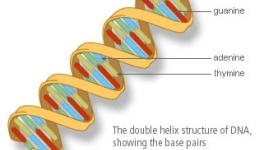Recent Study Shows New Findings on Aging of Human Cells

Image for representational use only.Image Courtesy : Science Daily.
Even though everyone perceives aging in a different way, a biologist’s lens would always peep into the microscopic cells and their death. The biology fraternity believes that aging takes place through cellular processes. In fact, every process pertained to the body has a cellular underpinning and it is imperative to decipher these processes. Aging is one among them.
The cellular underpinning of aging has been a popular subject matter of biological researches. A recent study published in Journal of Biological Chemistry sheds new light into the cellular process of aging. To understand how cells age, the study focused on the process known as the senescence. The process of senescence involves the natural process in which cells permanently stop creating new cells. This senescence is key to aging and also to multitude of age-related decline and manifesting diseases such as arthritis, osteoporosis or heart disease.
The research team found that the cells involved in senescence stop producing a class of chemicals called the nucleotides. The genetic material DNA has nucleotides as its building blocks. The research team took young cells and forced them to stop producing nucleotides, and they found that the young cells became senescent, or aged.
The team examined young cells that were proliferating robustly and labeled them with stable isotopes of carbon. This allowed them to trace how the nutrients that the cells consumed were processed into different biochemical pathways. They also developed 3D imagery of the labeling. The images revealed that the senescent cells had two nuclei and they could not synthesize DNA anymore.
Another important aspect of the new study is that the team has concentrated on epithelial cells—the cells that make the outer covering of the body. They are also the kind of cells where most cancers occur. Before now, senescence research had been focused on the fibroblasts—the most common cells that comprise animal connective tissues.
Senescence is also the most prominent defense system of the body against cancer. Primarily, cancer involves uncontrolled proliferation of cells. When cells of a particular organ face damage and the likelihood of entering the loop of uncontrolled proliferation increases, the cells enter senescence, which stops them from proliferating and hence stops cancer from developing and spreading.
Senescent cells are just opposite of the stem cells, which have the unlimited power of self-renewal and division. Senescent cells cannot simply divide and gives rise to the irreversible state of cell cycle arrest.
Nicholas Graham, the corresponding author of the study says—“Sometimes people talk about senescence as a double-edged sword that it protects against cancer, and that's a good thing. But then it also promotes aging and diseases like diabetes, cardiac dysfunction or atherosclerosis and general tissue dysfunction”.
But, removal of senescence completely would lead to unleashing of the cancer cells, which is why instead of removing senescence completely, Graham’s team tried to find a better way to remove senescent cells that could lead to healthy aging and better function.
Graham said—“The team's research has applications in the emerging field of senolytics, the development of drugs that may be able to eliminate aging cells. He said that human clinical trials are still in early stages, but studies with mice have shown that by eliminating senescent cells, mice age better, with a more productive life span. They can take a mouse that's aging and diminishing in function, treat it with senolytic drugs to eliminate the senescent cells, and the mouse is rejuvenated. If anything, it's these senolytic drugs that are the fountain of youth.”
Get the latest reports & analysis with people's perspective on Protests, movements & deep analytical videos, discussions of the current affairs in your Telegram app. Subscribe to NewsClick's Telegram channel & get Real-Time updates on stories, as they get published on our website.


















